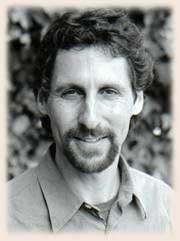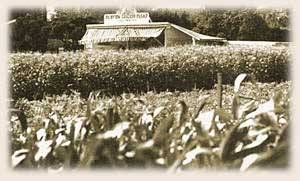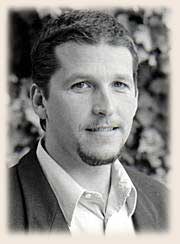| SOIL,
FOOD, & PEOPLE CONFERENCE
March 27-29, 2000
GROW BIOINTENSIVE conference on the U.C. Davis campus
Home
| Intro | Presentations
| Breakout Sessions | Friends:
Old & New | Sponsors
PRESENTATIONS
Agricultural Policy Alternatives
Michael Ableman | Martin
Borque
 |
Michael Ableman is the founder and director of the Center for Urban Agriculture
at Fairview Gardens, a nonprofit community and education center
near Santa Barbara, California. Through tours, classes and outreach
programs, his farm has become an important national model for
urban agriculture. He has authored From the Good Earth, a photographic
essay about organic farms around the world, and On the Good
Land about the evolution of his 11-acre farm in Goleta, California.
He and his farm are also the subject of an upcoming PBS-TV Special,
"Beyond Organics". |
Ableman said he had a hard time believing that
solutions could come from government. As an organic farmer he has
had to do everything on his own, with no government help.
The message of the 1960's was "Get big or
get out," and this statement is still echoing. He feels that
there is a big-business bias on many levels but that despite this,
there are an increasing number of small producers.
Ableman said that he had hoped that the food system
as a whole would be redefined, but he sees that organic farming
is now big, in the supermarkets, with the same "factory"
consciousness. He believes that the USDA rules do not support small
producers, although the USDA asked for input from them.
He thinks there should be a double system with
a double set of rules, one for large producers and one for smaller
ones.
Ableman feels that consumers are hungry not just
for the food small-scale producers can provide, but for the connections
with them. They want relationships. He thinks the food system is
more than just the responsibility of farmers.
There is a revolution taking place in neighborhoods
and backyards, and this revolution has the potential to address
a multitude of issues. He wants a sense of honor and craft to be
restored to agriculture.

Fairview Gardens, a nonprofit community
and education center located near Santa Barbara, CA. Photo: Michael
Ableman
top
 |
Martin Borque works for Food
First. |
Martin spoke of the 50 years of intensive chemical
agriculture in developed countries which have made important increases
in production but have concentrated agriculture in the hands of
fewer people and exacted heavy ecological costs.
He mentioned that in the Central Valley of California,
hundreds of wells have been closed due to contamination. There has
also been poisoning of people working in the fields because of pesticide
drift, in particular methyl bromide. He believes that most of the
solutions to these problems will have to come from communities,
and that this is already a major movement.
Borque wondered what agriculture could be like
if all our national resources were geared up towards changing it.
He has been working with Cuba for 5 years on agricultural exchanges,
and he spoke of what has been happening there as a example of the
possibilities.
In 1989, Cuban governmental policy was that the
country should export sugar and import everything else. Cuba had
one of the highest rates of chemical use in agricultural production.
With the breakup of the former Soviet Union and the resultant shutdown
of imports to Cuba, Cuba had to completely rethink its agricultural
policies.
Leaders from the highest levels of government
met to look at what resources were actually available. Oxen were
substituted for machinery. Research and development centers were
created to work on a biological pest control program.
These centers began to use agricultural waste
to grow biological controls. They also developed microbial fertilizers,
working with the relationships between micro-organisms and specific
crops. There was a massive retraining of professionals.
Borque pointed out that although there was a critical
food shortage in Cuba, government policy was that everyone should
eat, and resources were spread equally.
Cuba also inaugurated an urban agriculture
program in 1993 or '94, and the growing of food in backyards was
encouraged. Large farms were broken up into one-acre pieces or smaller,
and title was given to anyone who wanted to produce food. There
are now extension agents who have been trained in the new methods
who work with these farmers. There is a farm market program whereby
food is sold directly to consumers and organic farm supplies are
available in stores.
top |